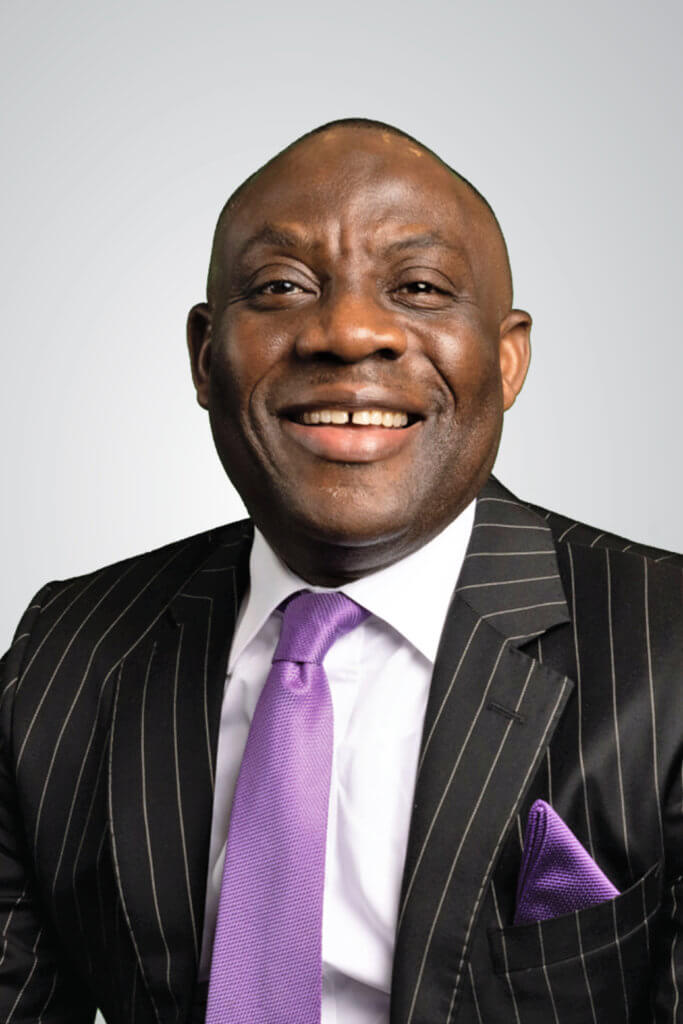
The Federal Government has unveiled a multi-pillar strategy aimed at transforming Nigeria’s health data management system to revitalise the country’s health sector and enhance its economic impact.
The Minister of State for Health and Social Welfare, Dr. Tunji Alausa announced this on Tuesday in Abuja during a high-level policy dialogue focused on sustainable health system reforms in Nigeria. Themed “Private Sector Support for SWAP (sector-wide approach) in Healthcare,” the event was organised by the Healthcare Federation of Nigeria (HFN), a coalition of private sector stakeholders.
HFN highlighted that the dialogue would incorporate international expertise and best practices to support the government’s reform agenda. This initiative promises productive collaborations aimed at driving the sector toward achieving Universal Health Coverage (UHC) and improving healthcare for all Nigerians.
Alausa stressed the need for an integrated approach to healthcare, aligning it with national economic goals. He outlined four key pillars of the government’s strategy to reform the healthcare system.
The first pillar of the strategy emphasises the critical role of government in strengthening the healthcare system, underscoring that a robust health infrastructure is essential for improving the population’s well-being and enhancing economic productivity.
The second pillar focuses on unlocking the potential of the National Primary Health Care Development Agency (NPHCDA) to significantly contribute to Nigeria’s Gross Domestic Product (GDP). Alausa criticised the current state of the NPHCDA, describing it as “green, cost-saving, and GDP-limited” and called for reforms to make it a more valuable economic asset.
The third pillar aims to address the intersection of health, social, and national security by driving digitalisation efforts in healthcare delivery and data management. The minister stressed the importance of accurate and actionable data, criticising the current fragmented system of health data collection where multiple programmes operate independently without a unified strategy.
“In the 21st century, we must ensure our data is accurate and actionable,” Alausa said, pointing out the inefficiencies of piecemeal data collection. He proposed a more cohesive system that consolidates efforts from local, state and federal levels.
He also noted that, with a population of over 220 million, Nigeria could no longer afford to run disparate health programs. The proposed solution includes a national intellectual development initiative that fosters collaboration among stakeholders in healthcare, policy, and education.
A key aspect of the strategy is the role of the private sector in health data management. The minister clarified that the government does not intend to own the data solutions being developed. Instead, the government will facilitate the flow of health data while transitioning its ownership to the private sector.
“We are creating a platform where the private sector can plug in and contribute, and this shift will allow for the monetisation of health data in the future,” he explained.
The strategy includes operationalising a standardised Patient Management Record (PMR) solution that states can adopt to streamline digitalisation efforts. This platform will allow for comprehensive tracking of health data across all levels of the healthcare system.
Currently, health data is collected manually through lengthy questionnaires that include up to 500 data points, often leading to inaccuracies. Alausa proposed a more efficient and error-free system, focusing on critical areas like immunisation and maternal health.
A central component of the strategy is the establishment of a comprehensive national identification system, where every individual will have a unique identifier linked to health services. Alausa announced the introduction of a Temporary National Identification Number (TNIN) for individuals without a National Identification Number (NIN), ensuring everyone is accounted for in the health system.
“Within two years, we aim to have 90 million individuals registered on this platform,” he said, adding that this system would ensure continuity of care and allow health information to follow patients across borders.
Alausa also unveiled plans for a pilot programme that will enhance care continuity through geofenced primary care centres. This initiative will enable seamless, bidirectional data flow between Nigerian primary care centres and those in neighbouring countries, improving patient management for individuals who travel for health services.
“Our goal is to create a health ecosystem where information flows freely and securely, ensuring that every patient receives the best possible care, regardless of their location,” he added.
During the event, president of the UNITE Parliamentarians Network for Global Health and CEO of HealthAI, Dr. Ricardo Baptista Leite delivered a keynote address on the future of healthcare. Baptista Leite emphasised the urgent need for a transformative approach to health systems, focusing on improving outcomes, quality of life and overall well-being.
To radically transform health systems, Leite argued that countries must develop indicators that effectively reduce the burden of disease in their communities. He stressed the importance of collaboration between the public and private sectors, as well as the need to prioritise health promotion rather than merely addressing sickness.
“We need to use the power of artificial intelligence to build a new model of healthcare that focuses on well-being and quality of life,” he said, highlighting the potential of AI as a transformative equaliser in healthcare.
However, Baptista Leite also warned that AI could exacerbate existing inequalities if not properly embraced. “Africa needs to take the lead when it comes to artificial intelligence,” he urged, calling for proactive engagement with this technology.
Leite critiqued the current state of health systems worldwide, noting that they are often reactive rather than proactive. “Health systems should be called disease systems because they only react when people get sick,” he said.
Despite significant financial investments in health systems, Baptista Leite cautioned that the current approach is unsustainable. “You don’t need to be a genius to understand that this is not sustainable,” he concluded, advocating for a paradigm shift towards a more holistic and sustainable model of healthcare that focuses on prevention, collaboration and well-being.

